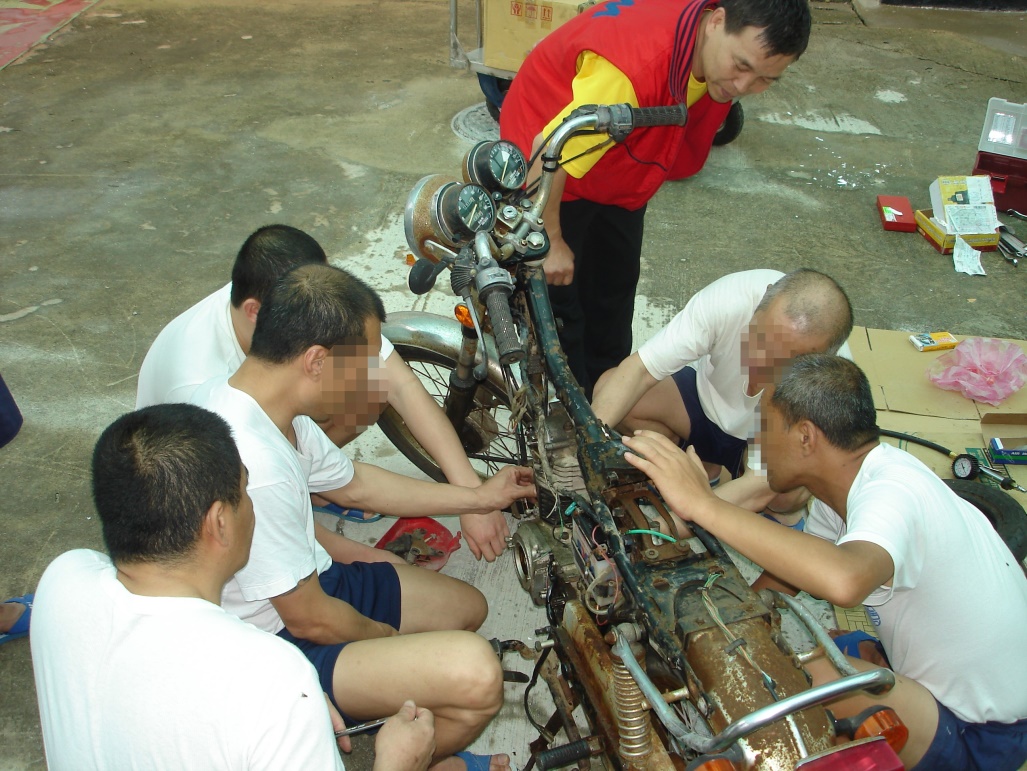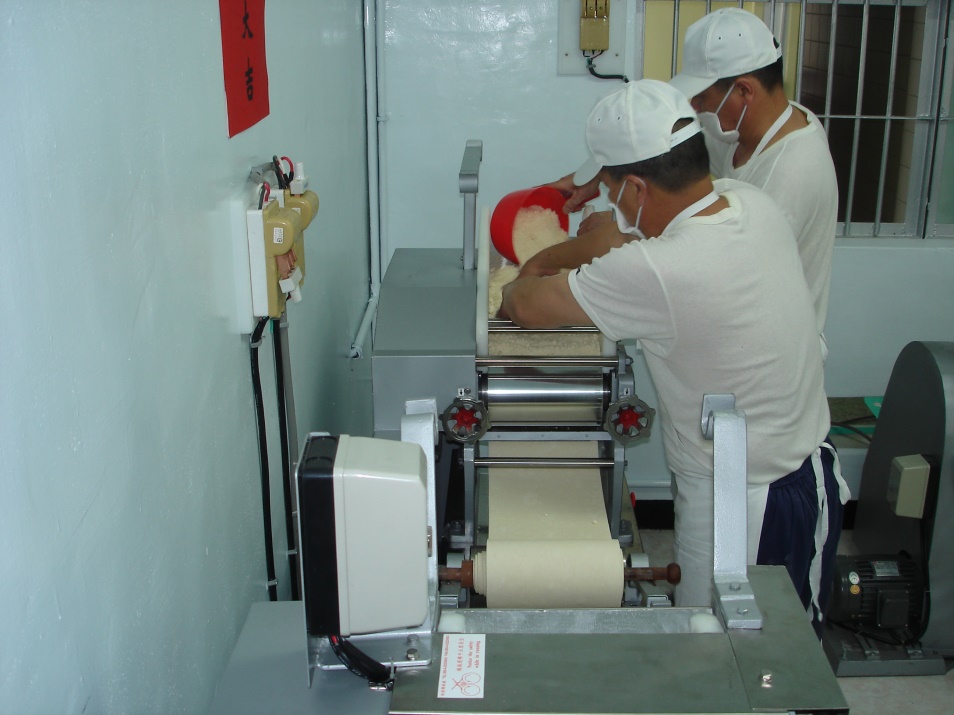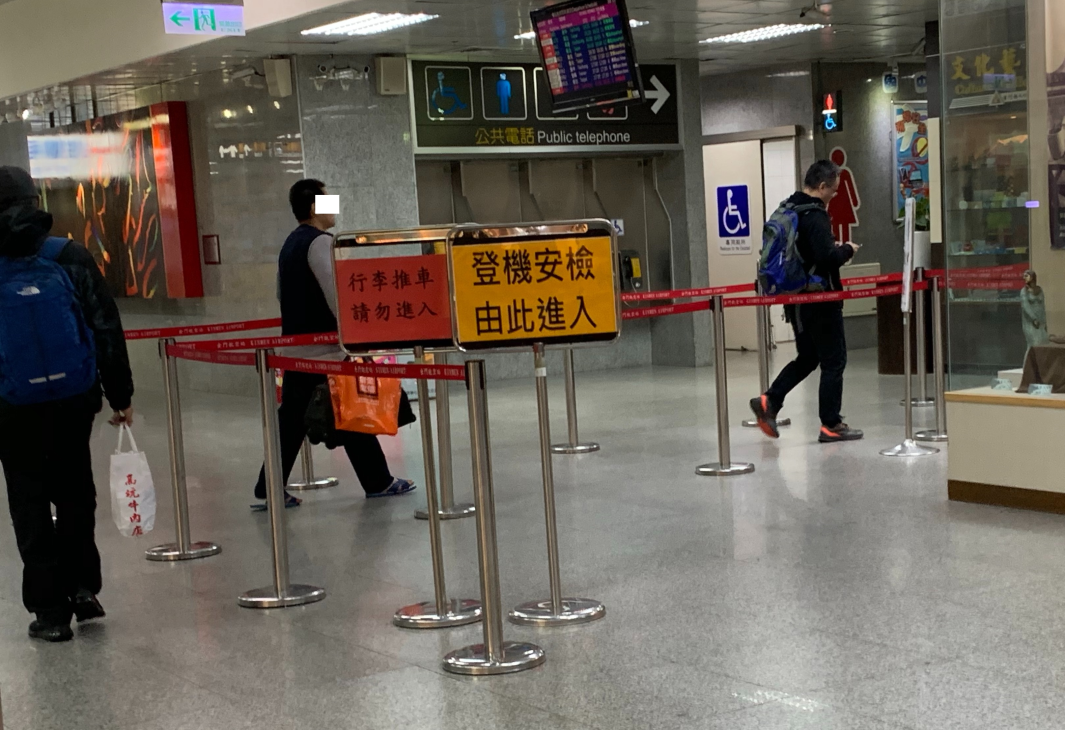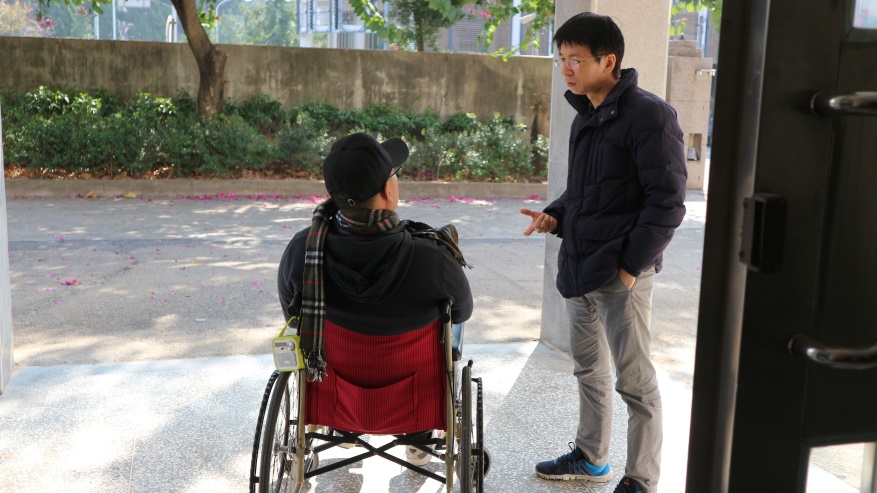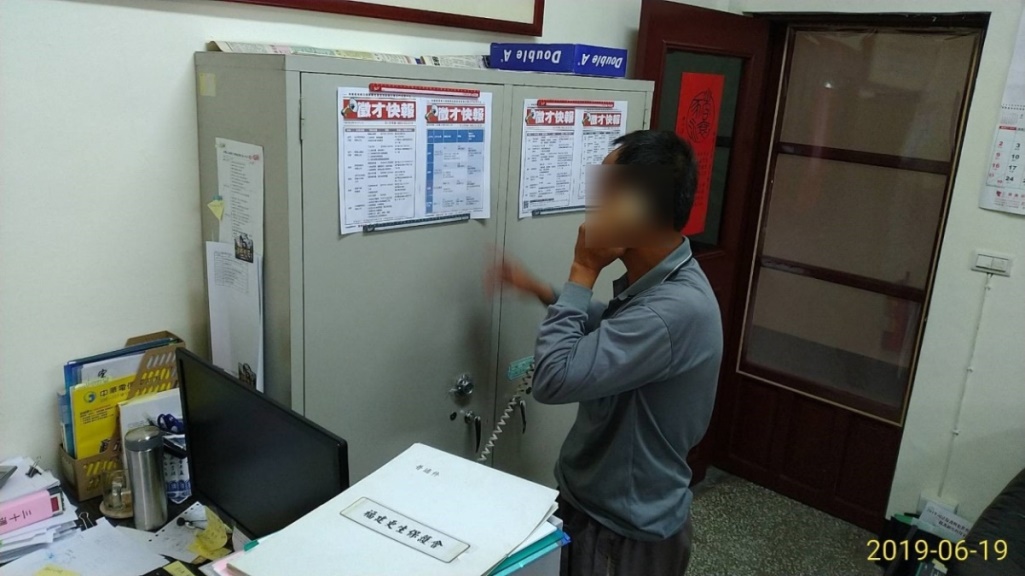Direct protection is provided by education, reforming or skill training. The Association currently offers halfway institutions and businesses as direct protection institutions, and collaborates with social welfare authorities in providing settlement and skills training.
Means of Protection
- Publication Date:
- Last updated:2025-05-06
- View count:255
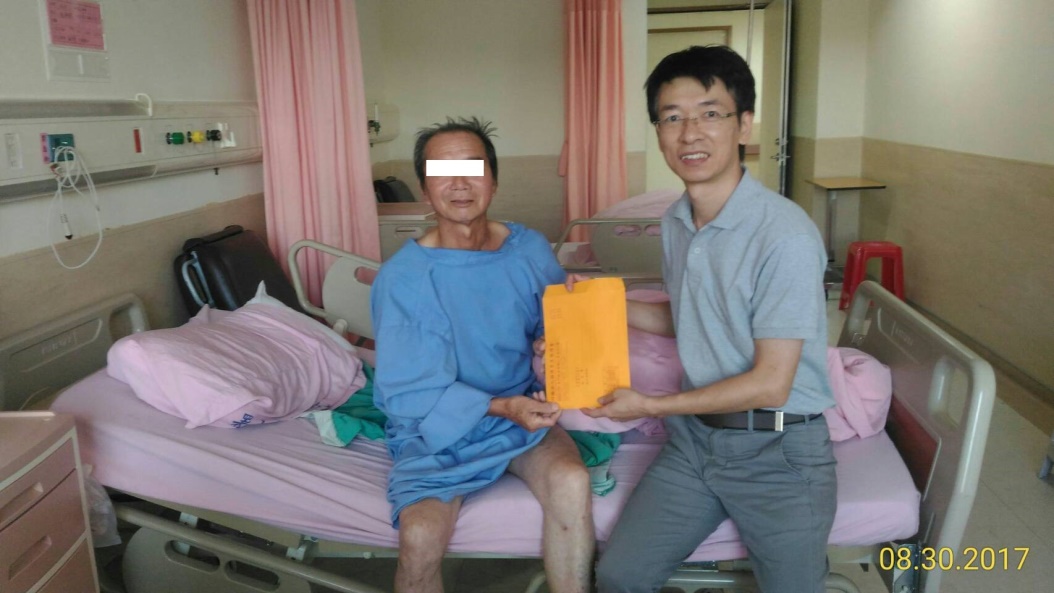
1. Direct Protection
A. Halfway Institutions
Halfway institutions provide after-care participants who are homeless, temporarily unsuitable for returning home, or who voluntarily submit to drug rehabilitation programs with temporary accommodation, and provide them with employment, skills training and psychological counselling and guidance. The period of accommodation is generally set as 6 months (or 18 months for those who are undergoing drug rehabilitation program); this period may be extended to 3 to 6 months if accommodation is still necessary after expiry of the initial period. Meals and housing will be provided during this period, and day-to-day needs as well as petty cash will be provided each week depending on the circumstances. Those after-care participants who take drug rehabilitation programs will also be benefit by being kept from the temptation of drugs.
B. Skills Training
The rehabilitated will be assisted in learning new skills, as an extension of the corrective function of the prison. The Association proactively collaborates with social resources and various local vocational training institutions in providing vocational programs in computing, cooking, ceramics, beautician training, gardening, textile design, mechanics, architecture and advertising, thereby assisting the participant to rejoin the workforce or start his/her own business.
C. Exemption from Technical Accreditation Fee
In order to enable financially strained after-care participants to learn new skills and apply for technical accreditation examinations, the Association has collaborated with Workforce Development Agency in lobbying for a reduction of, or exemption from, the technical accreditation fee. This reduction or exemption has started since 2009; each after-care participant became entitled to one free accreditation in his/her lifetime. This policy was changed in 2010 where each participant is now entitled to one exemption from the technical accreditation fee for vocational skills in the same category, and three exemptions in total for vocational skills in different categories.
D. Joining the Workforce
The Association encourages and counsels after-care participants to start their own after-care businesses. The Association will offer partial loans to enable the after-care participant to start a business, with the loan to be repaid in instalments without interest within five years. The after-care participant must also employ other after-care participants in accordance with the terms of the loan agreement.
E. Collaborating with Social Welfare Institutions in Providing Accommodation
To expand its function as a halfway house, the Association actively solicits other relevant social welfare institutions in providing housing services. The collaborating institution would provide accommodation, counselling personnel and pay the costs for the counselling services, while the Association would bear the costs of meals and petty cash for the person being housed, as well as partially subsidize the administrative expenses.
- Types
- (A)Children and juveniles
- (B)Adults
- (C)Adults undergoing drug, or alcohol rehabilitation program
- (D)Others (such as AIDS halfway house or halfway house for psychological illnesses and drug rehabilitation)
2. Indirect Protection
A. Employment Assistance
In order to promote employment of the rehabilitated, the Association will assign personnel to correctional institutions every month to provide psychological counselling, vocational education, employment/entrepreneurial counselling services and other measures to promote entry into the workforce. The Association will also reinforce their willingness to rejoin the workforce through post-prison tracking and counselling.
The Association proactively solicits businesses to provide after-care participants with employment, establishes a database of collaborating businesses, proactively makes individual contacts and notifies individuals of employment-related information, so as to successfully match employers with employees.
Collaborating with employment agencies to develop new employment resources; making use of such online employment agencies such as 123yes, eJob, 1111 and 104 in referring job opportunities to after-care participants, and actively soliciting businesses and locating new collaborating businesses, so as to increase the number of job opportunities available to after-care participants.
B. Education Assistance
Where any child or juvenile under after-care is interested in pursuing further studies, he/she will be supported with entering, re-joining or transferring to a school. In order to encourage the rehabilitated to pursue further studies and to assist them with funding, scholarships, subsidies, special scholarships and living expense allowances are also offered. Local branches of the Association also collaborate with local temples and charity groups to encourage children of current and ex-prisoners in financial hardship to dedicate themselves to education. For this purpose, scholarships are also available for children of current and ex-prisoners.
C. Medical Counselling
Where a rehabilitated has an illness and is unable to seek medical treatment due to financial hardship, the Association will assist by referring him/her to a public or private hospital, and provide such person with hospitalization or clinical treatment as necessary. Where such a person has no national health insurance and is unable to obtain any other social aid, the Association will provide appropriate financial assistance.
D. Emergency Assistance
Where the rehabilitated or the spouse and lineal blood ascendant of such after-care participant is subject to a serious incident or crisis, that cannot be resolved on his/her own due to financial hardship, the Association will offer financial assistance depending on the circumstances, or request the relevant social welfare authority or private welfare group to provide the necessary assistance.
E. Visiting After-care Participant
Upon receiving the written notice of after-care issued and submitted by correctional institution, district courts, district prosecutors office or other institutions, the Association will assign its staff or after-care counsellor to visit and interview the after-care participant in accordance with the protection notice, to understand the actual needs of the participant and provide the necessary counselling and assistance.
F. In-Prison Services
(A)In order to better implement the after-care function and promote coordination between the prison correction and after-care work, each branch will hold in-prison educational programs (psychological counselling, vocational education, employment/ entrepreneurial counselling, general legal knowledge, and promotion of after-care and cultural activities) and counselling each month.
(B)Each branch will appoint the appropriate personnel to undertake in-prison service work, and will provide individual counselling and guidance to prisoners who are about to be released, assisting them to make plans for their lives after the release and solve any potential problems that may arise after the release, as well as arrange for further education or employment
3.Temporary Protection
Temporary Protection means that rehabilitated will be given travel allowances, for them to return to domicile or other places, such as subsidization of medical expenses, household registration, meals and accommodation, or given small loans for starting businesses, or other appropriate means of protection. In the majority of cases, such assistance is provided right after the release of the prisoner.
A. Travel Allowances
Financial assistance is given to those who are freshly released from prison and lack the funds necessary to return home, or who become unemployed away from home, or who fail to meet the friends they arranged to meet, and are temporarily stranded away from home.
B. Subsidization of Medical Expenses
Subsidization of a part of the medical expenses is given to the rehabilitated in financial hardship, who receive medical treatment for injury or illness at a public hospital, medical center or regional hospital and are unable to cover the medical expenses on their own.
C. Financial Assistance for Meals and Accommodation
Financial assistance is provided where an after-care participant is far away from home and must return home by car, ferry or airplane, and where he/she is unable to bear the cost of meals and accommodation while waiting for the scheduled time of travel. Money is also provided to after-care participants who must undergo medical treatment or be sent to alternative care due to physical or mental impediment, and are unable to bear the costs of meals and accommodation incurred in the course of travel.
D. Escort Home or to Other Places
Where the rehabilitated wishes to return home after being released from prison, but is unable to do so due to a mental or physical hardship, being too old or too young, returning home after releases or is homeless, and must be transferred to a welfare or medical institution for accommodation or treatment, an escort will be provided to home or where the welfare or medical institution is located
E. Loan for Starting a New
(A) Small Loan for Starting New:
When a less than four years the rehabilitated has the entrepreneurial ability and experience to operate a small business but lacks the required funds, in the interests of enabling such person to make his/her own living, a small loan (NT$400,000~600,000) will be granted upon the case being assessed and approved by the branch assessment team, provided that the after-care participant provides two or more persons with financial ability or of honest background as his/her co-guarantors, or provides real estate for mortgage.
(B) After-Care Business Loan
A loan is provided with interest free loan for an after-care business (under NT$1,000,000) that offers job opportunities to after-care participants.


